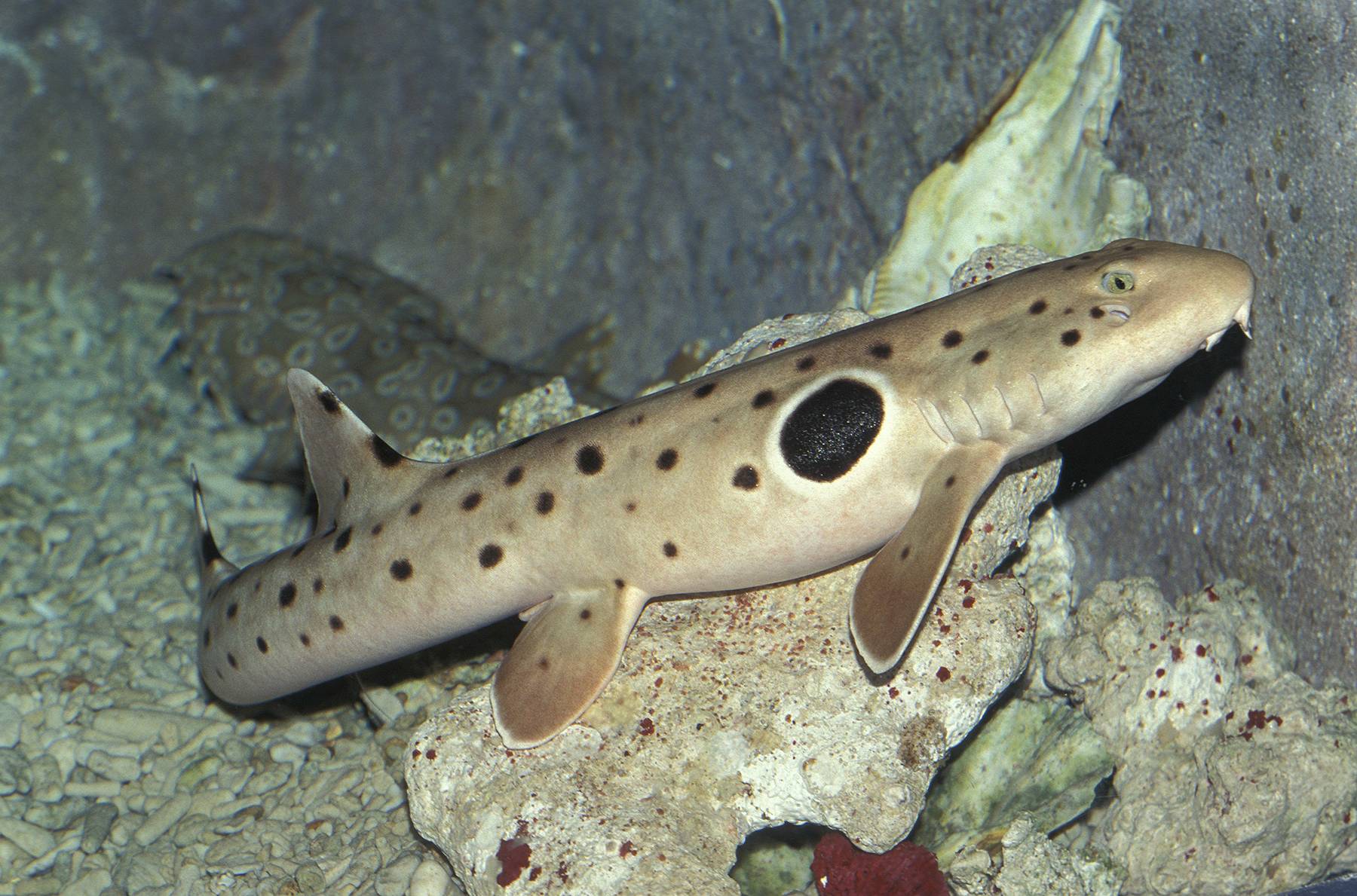Jayme Blaschke | December 12, 2023

For more than 400 million years, sharks have swum Earth’s oceans. Before the first dinosaurs appeared, sharks filled every ocean. Surprisingly, sharks have changed very little during that span and look very much like their ancestors, even as other animals have undergone dramatic evolutionary change.
Now, researchers from Texas State University (TXST) have led an international team from the U.S., Germany, Australia and Sweden in discovering the reason for this. They found that sharks have the lowest mutation rate between generations ever recorded in vertebrates.
The study was led and coordinated by Manfred Schartl, Dr. rer. nat., from the Xiphophorus Genetic Stock Center (XGSC) at TXST, and co-authored by bioinformatics expert Kang Du, Ph.D., also from the XGSC at TXST. The paper, “Low mutation rate in epaulette sharks is consistent with a slow rate of evolution in sharks,” is published in the journal Nature Communications.
Studies on Epaulette Sharks
For the study, epaulette sharks were caught off the northeast coast of Australia, and a breeding station was subsequently set up at the Australian Regenerative Medicine Institute (ARMI) at Monash University. This made it possible for the first time to genetically assess the mutation rate within a shark family tree.
The research team created a high-quality reference genome and sequenced the entire genomes of the parents and then the nine offspring to discover new mutations occurring in the progeny. The result was eye-opening: with an estimated mutation rate of 7×10-10 per base pair per generation, epaulette sharks have the lowest mutation rate ever recorded in vertebrates. For comparison, the sharks’ mutation rate is 10-20 times lower than in mammals.
Low Mutation Rate as a Double-Edged Sword
Researchers have long understood that sharks have an exceptionally low cancer rate. This finding may offer insight into why.
“The low mutation rate could play a decisive role in this,” Schartl explained. “What initially sounds like good news for the animals, however, also brings with it some problems.”
While negative mutations can potentially give rise to cancer, mutations in general are crucial because they increase genetic variability within populations, enabling adaptation to new conditions and evolutionary change. Because sharks evolve very slowly, they are at risk of being unable to withstand ecological stresses such as overfishing and habitat loss.
Particularly Worthy of Protection
Some shark populations worldwide are experiencing dramatic declines. Of around 530 known shark species, several are already considered to be in acute danger of extinction. They are particularly threatened by changes in their habitat due to ocean warming. Overfishing and incidental shark death in commercial fisheries is an ongoing problem. Sharks are actively hunted for their fins for use in shark fin soup, and there is also growing demand for shark body parts to produce unproven anti-cancer supplements in some traditional medicines.
Because sharks play a crucial role in many marine ecosystems, it is vital to support and intensify efforts to protect all shark species and preserve their genetic diversity.
Share this article
For more information, contact University Communications:Jayme Blaschke, 512-245-2555 Sandy Pantlik, 512-245-2922 |
